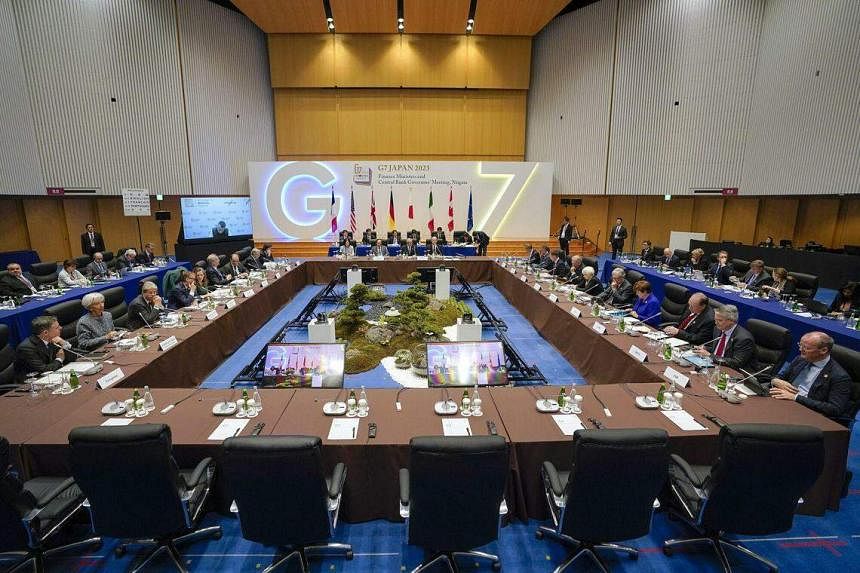Global Courant 2023-05-12 08:04:00
NIIGATA, Japan — The financial leaders of the Group of Seven (G-7) bloc of wealthy industrialized countries will discuss Friday how to strengthen resilience in supply chains so developing countries can reduce their dependence on China for critical products.
Their three-day meeting in Niigata, a coastal town in central Japan, comes to an end on Saturday. It is a prelude to the G-7 leaders’ summit in Hiroshima from May 19 to 21, where China is once again expected to be the elephant in the room.
The G-7 foreign ministers at their April meeting had called on China to “act as a responsible member of the international community” and to “abstain from threats, coercion, intimidation or the use of force”.
United States Treasury Secretary Janet Yellen said in Niigata on Thursday that the G-7’s top priority was to mitigate geostrategic risks and counter China’s alleged use of “economic coercion” to assert its dominance.
The G-7 consists of Britain, Canada, France, Germany, Italy, Japan and the US. The European Union is an “unlisted” member with no right to the rotating presidency.
On Friday afternoon, G-7 finance leaders and central bank governors will host a rare outreach session with six invited countries: Brazil, Comoros, India, Indonesia, Singapore and South Korea.
Singapore will be represented in Niigata by Deputy Prime Minister and Finance Minister Lawrence Wong, who said in a Facebook post on Thursday that he will “discuss ways to strengthen economic and financial cooperation between emerging markets and developed economies” with his colleagues.
Other issues on Friday’s meeting agenda include ways to protect financial stability from bank runs. Three regional US lenders — Silicon Valley Bank, Signature Bank and First Republic Bank — have collapsed since March.
“Financial concerns can immediately spread through social networking platforms, while digital banking that allows out-of-hours cash withdrawals could lead to bank runs,” Japan’s Finance Minister Shunichi Suzuki said on Thursday.
Central Bank Governor Kazuo Ueda said the volatility is not seriously affecting Japan’s banks, adding that calm has returned to the global financial system.
G-7 finance leaders will also discuss topics such as climate change and the debt trap in developing countries.
This is because Japan, under its G-7 presidency in 2023, is prioritizing the rebuilding of multilateralism with low- and middle-income countries in the so-called Global South, emphasizing the need to establish an international rules-based to protect order.
On Thursday, G-7 finance leaders discussed the ongoing Russian invasion of Ukraine, in an effort to strengthen the bloc’s sanctions regime against Moscow to push the Kremlin to end the war.




